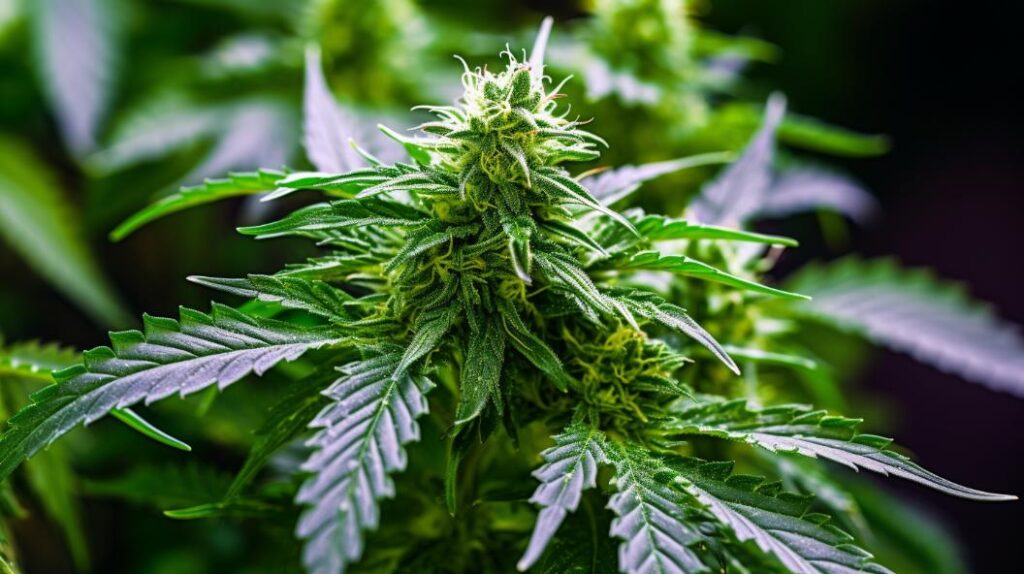Cannabis has gained significant attention in recent years for its potential medical applications, with various strains offering unique therapeutic benefits. Among these strains, Tuna Kush stands out as a potent indica-dominant hybrid celebrated for its unique profile of cannabinoids and terpenes. While it is primarily known for its relaxing effects, Tuna Kush also holds potential for various medical benefits supported by emerging scientific evidence.
In this blog, we delve into the medical benefits of Tuna Kush, its key components, and what science says about its potential to address specific health concerns.
What Is Tuna Kush?
Tuna Kush is an indica-dominant cannabis strain with a distinct aroma, often described as earthy and pungent, with a hint of skunky undertones. This strain is believed to originate from the legendary Hindu Kush region, renowned for its high-quality cannabis genetics. Tuna Kush typically contains a high THC content, ranging between 18-25%, along with small amounts of CBD and other cannabinoids.
Its terpene profile, including myrcene, limonene, and caryophyllene, contributes to its therapeutic effects, which we will explore in detail below.
Key Cannabinoids and Terpenes in Tuna Kush
The medical benefits of Tuna Kush largely stem from its cannabinoid and terpene profile. These compounds work together in a phenomenon known as the entourage effect, enhancing the therapeutic potential of the strain.
Cannabinoids in Tuna Kush
- THC (Tetrahydrocannabinol): Known for its psychoactive effects, THC also offers pain relief, anti-inflammatory properties, and mood-enhancing benefits.
- CBD (Cannabidiol): Though present in smaller amounts, CBD complements THC by mitigating its psychoactive effects and providing additional therapeutic benefits, such as anxiety relief.
- CBG (Cannabigerol): Some batches of Tuna Kush contain trace amounts of CBG, a cannabinoid with potential antibacterial and anti-inflammatory properties.
Terpenes in Tuna Kush
- Myrcene: Known for its sedative effects, myrcene can help with insomnia, pain, and stress.
- Caryophyllene: This terpene has anti-inflammatory and analgesic properties, making it useful for managing chronic pain.
- Limonene: Limonene offers mood-enhancing and anti-anxiety effects, contributing to the strain’s calming properties.
Medical Benefits of Tuna Kush
1. Pain Management
Chronic pain is one of the most common conditions for which medical cannabis is prescribed. The high THC content in Tuna Kush interacts with the endocannabinoid system to modulate pain signals in the body.
How It Works:
- THC binds to CB1 receptors in the brain and nervous system, reducing the perception of pain.
- Caryophyllene contributes to anti-inflammatory effects, particularly for conditions like arthritis or muscle pain.
Studies have shown that cannabis strains with similar THC and terpene profiles are effective in managing neuropathic pain, making Tuna Kush a potential option for individuals dealing with chronic discomfort.
2. Stress and Anxiety Relief
Tuna Kush is known for its deeply relaxing effects, which can be beneficial for those struggling with stress and anxiety disorders. The calming properties of myrcene and limonene work in harmony to promote relaxation without overwhelming the user.
Scientific Backing:
- Research suggests that limonene helps reduce stress and improve mood by interacting with serotonin receptors in the brain.
- A study published in Frontiers in Psychiatry highlighted how THC in moderate doses could alleviate anxiety by reducing overactivity in the amygdala, a brain region linked to fear and stress.
For individuals seeking relief from anxiety or high-stress levels, Tuna Kush can offer a soothing experience when consumed responsibly.
3. Improved Sleep Quality
Insomnia and other sleep disorders are widespread issues that significantly impact overall health. Tuna Kush’s sedative effects, primarily driven by its myrcene content, make it a popular choice for individuals looking to improve their sleep.
Mechanism of Action:
- THC shortens the time it takes to fall asleep, while myrcene enhances deep, restorative sleep by relaxing muscles and nerves.
- Research in the journal Sleep Medicine Reviews indicates that cannabis strains high in myrcene and THC can improve sleep onset and quality for people with insomnia.
4. Appetite Stimulation
For patients undergoing treatments such as chemotherapy or dealing with conditions like anorexia, appetite stimulation is crucial. Tuna Kush is effective in triggering the “munchies” due to its interaction with CB1 receptors in the brain, which regulate hunger.
Supporting Evidence:
- A study in The Journal of Clinical Oncology found that THC improved appetite and reduced nausea in cancer patients undergoing chemotherapy.
- Tuna Kush’s high THC levels can also help combat weight loss associated with chronic illnesses like HIV/AIDS.
5. Nausea and Vomiting Relief
Tuna Kush’s antiemetic properties make it valuable for individuals experiencing nausea and vomiting due to medical treatments or gastrointestinal conditions. The interaction between THC and CB1 receptors in the brain reduces signals that trigger nausea.
Real-World Application:
Patients undergoing chemotherapy often turn to cannabis for relief from nausea and vomiting. Tuna Kush, with its potent THC levels, can provide the relief they need while also offering relaxation and improved mood.
Potential Risks and Considerations
While Tuna Kush offers numerous medical benefits, it’s essential to use it responsibly and consult a healthcare provider before incorporating it into a treatment plan. High THC levels can cause side effects such as:
- Dizziness
- Dry mouth and eyes
- Increased heart rate
- Temporary memory impairment
Additionally, individuals prone to anxiety or paranoia may need to start with smaller doses to avoid potential discomfort.
How to Use Tuna Kush for Medical Purposes
Consumption Methods
- Smoking or Vaping: Provides fast relief but may not be suitable for individuals with respiratory issues.
- Edibles: Offer longer-lasting effects but take more time to kick in.
- Tinctures and Oils: Allow for precise dosing and can be ingested or used sublingually.
- Topicals: Effective for localized pain and inflammation without psychoactive effects.

Dosage Tips
- Start with a low dose to gauge tolerance, especially if you’re new to cannabis.
- Always consult with a medical professional to determine the right dosage for your specific needs.
Conclusion
Tuna Kush is more than just a potent cannabis strain; it’s a therapeutic powerhouse with significant potential to address various medical conditions. From pain management and stress relief to appetite stimulation and improved sleep, Tuna Kush offers a natural alternative for individuals seeking relief from a range of health concerns.
While scientific research on cannabis is still evolving, existing studies and anecdotal evidence support the strain’s benefits for medical use. If you’re considering Tuna Kush for therapeutic purposes, be sure to consult with a healthcare provider and follow recommended guidelines to make the most of its potential benefits.
As cannabis continues to gain acceptance in the medical field, strains like Tuna Kush stand out as valuable tools for improving health and well-being naturally.

